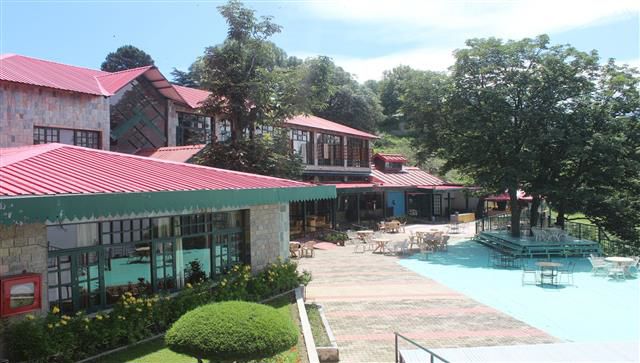It was a simple issue, really. The Kasauli Club, renowned for its storied history as a sanctuary for the British Raj’s elite, where social meetings, tea and dinner dances were the norm, found itself in the middle of a footwear fiasco. The debate? Whether or not walking shoes, recommended for seniors, should be allowed inside the hallowed halls of this venerable establishment.
You’d think such a matter would be resolved swiftly with a nod of agreement and, perhaps, a polite round of applause. But no, the erudite members of the club argued the point until the cows came home. The dress code, it seems, is sacrosanct, especially in the bar and dining hall. Here, tradition holds sway like an overbearing grandmother at a family reunion. One must don the proper attire, lest they offend the ghosts of club members past, who presumably wore top hats and tails even to breakfast.
Pavan K Varma, a former diplomat, wrote that a dress code in clubs is necessary but should not become a fetish. Yet, here we were, embroiled in a debate that felt like choosing sides in a sartorial civil war. On one side were the modernists, championing comfort and commonsense. “Walking shoes are recommended for seniors!” they cried. They spoke of arches and orthopaedics, of podiatry and practicality. They envisioned a future where one could stride confidently into the club without the fear of being rebuked for wearing comfortable shoes. Opposing them were the traditionalists, staunch defenders of decorum. “What’s next?” they demanded. “Tracksuits at teatime? Sneakers at soirées?” They painted a picture of a slippery slope leading to the ultimate downfall of civilisation, or at least the club’s reputation. Formal Indian traditional dresses, they conceded, could be allowed. After all, there’s a certain gravitas to a well-draped saree or an elegantly tailored kurta. But walking shoes? That was a bridge too far.
A member of the Calcutta Club recounted the memory of MF Husain, India’s most famous artist, being denied entry for not wearing appropriate footwear. And then there was Ananda Shankar, the choreographer, who was also turned away for dress code infractions. Clearly, clubs have a history of ensuring that the spirit of elegance was preserved, even as members shuffled about in sensible shoes elsewhere. And so, the arguments raged on, with each side bringing forth their champions, armed with anecdotes and expert opinions.
One gentleman, surely resplendent in his blazer and brogues, declared that he had once seen a man in walking shoes and torn jeans order a cocktail, and the horror of it still haunted him. Another member countered, sharing a story of his grandmother, who had taken up brisk walking at the age of 80 and credited her longevity to her trusty walking shoes. “Sir, walking shoes will be defined differently by each individual,” someone said, “My grandparents and parents have always walked into the club appropriately dressed for the last 55 years. So, coming to the rules, let’s implement them to the hilt.”
Another worthy suggested implementing a new rule: all members above 60 should produce a medical certificate and could then wear the approved footwear. And let’s not forget to station a panel of podiatrists at the entrance, ready to approve or disapprove each pair of shoes.
In the midst of this debate, the Kasauli Club itself stood as a silent witness, trying to change with the times while holding on to its cherished traditions. It had seen trends come and go, from the days of tennis whites to the era of designer tracksuits. But this discussion about sports shoes? It was a conundrum for the ages.
Every institution reflects its unique culture and ethos, and members are typically drawn to it because of these qualities, not in spite of them. Therefore, it’s perhaps important to respect and maintain these traditions. Also, at the very daunting interview prior to receiving membership, hadn’t members assured they would uphold the very traditions that made Kasauli Club the venerable institution it is?
And so, life at the Kasauli Club went on. The debate over walking shoes had not only brought the members together in a spirited discussion, but also underscored that some issues are worth every minute of debate — if only for the stories they leave behind.
Unlock Exclusive Insights with The Tribune Premium
Take your experience further with Premium access.
Thought-provoking Opinions, Expert Analysis, In-depth Insights and other Member Only Benefits
Already a Member? Sign In Now











